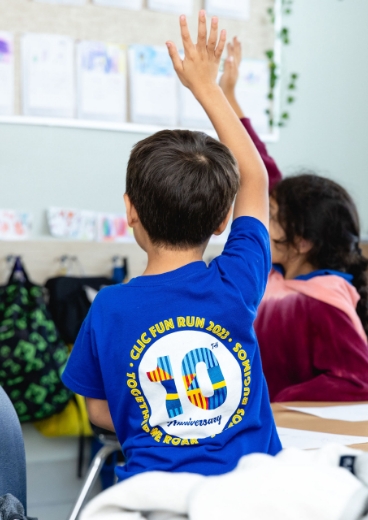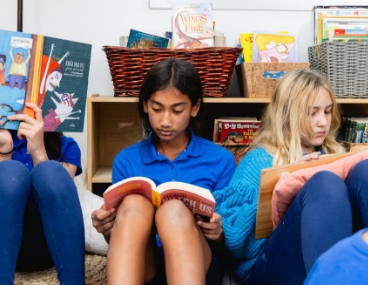Social Emotional
Social Emotional Learning (SEL)
We take a whole-child approach to education, recognizing that academic growth goes hand in hand with social and emotional development. Social-emotional learning (SEL) is woven into every grade level, helping students build self-awareness, manage emotions, develop empathy, and strengthen their ability to work with others.
In the early grades (Kindergarten–2nd), SEL often looks like learning how to name feelings, practicing sharing and turn-taking, and developing routines that build a sense of safety and belonging. Teachers use stories, games, and class meetings to help children express themselves, problem-solve, and build friendships.
As students move into the middle grades (3rd–5th), SEL lessons begin to focus on perspective-taking, teamwork, and how to manage bigger feelings such as frustration and disappointment. Students are given more opportunities to practice setting goals, taking responsibility for their choices, and resolving conflicts with guidance from their teachers.
By the upper elementary years, students are ready to engage more deeply with concepts like empathy, inclusion, and ethical decision-making. They learn to navigate peer relationships with increasing independence, manage stress, and use their voices in constructive ways. These skills prepare them not only for middle school but also for life beyond the classroom.
This emphasis on the social and emotional aspects of learning benefits all students and creates a school community where children feel safe, supported, and ready to learn. For staff, it provides a framework for understanding the whole child, and for parents, it offers insight into how we nurture both academic and personal growth.
Diversity, Equity, Inclusion, and Justice (DEIJ)
CLIC is committed to continually learning and implementing equitable practices across our organization to create opportunity for and liberate all students. Our four year Strategic Equity Plan (English and Spanish) outlines purposeful goals focused on developing equitable practices with staff, students, and caregivers. All school staff participate in monthly diversity, equity, inclusion, and justice (DEIJ) professional development that evolves their understanding and application of equitable systems, practices, and curriculum. This includes anything from restorative practices to assessing and developing curriculum with a focus on centering diversity and social justice in all units. In addition, students engage in DEIJ focused lessons that develop their understanding of their own identity, the value of diversity, and how everyone can stand up against injustice. You can learn more by reading our DEIJ Commitment and exploring the other linked resources below. For more information regarding our commitment to diversity, equity, inclusion, and justice, you may contact Bianca Hernandez, Director of DEIJ, at bhernandez@newlosangeles.org or connect with your school principal.
Our DEIJ Commitment
One of our goals is to clearly communicate how you can see our commitment to equity in practice
Hate Speech Practice
At New LA, we work to keep all students safe at all times. Hate speech is responded to with seriousness and urgency
Restorative Practices
At New LA, we work to keep all students safe at all times. Hate speech is responded to with seriousness and urgency


